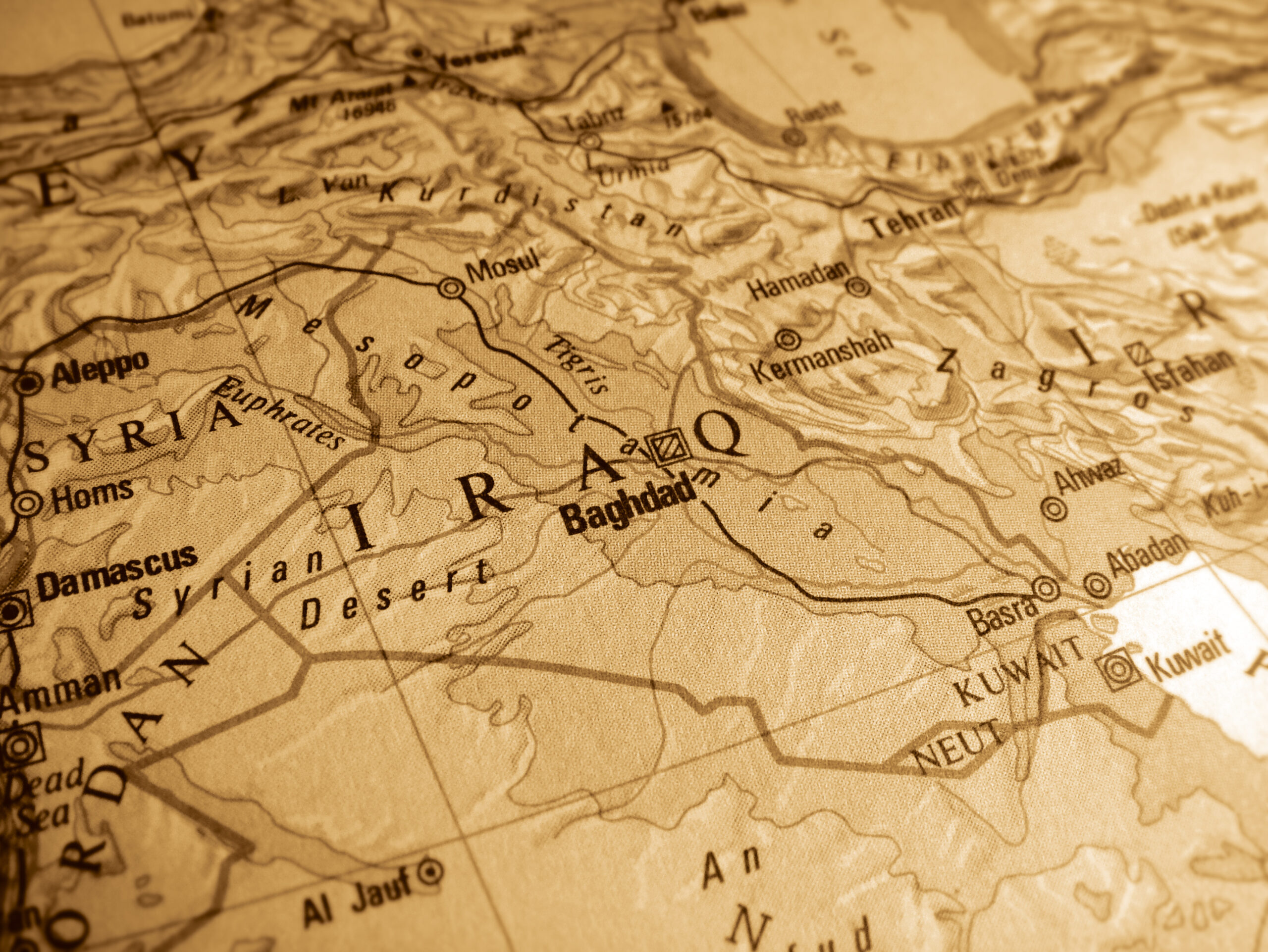Introduction
The agitation against Uthman’s authority began in Iraq. Sālim ibn Abdullah ibn ‘Umar said that the Messenger of Allah said: “Tribulation will come from there” and he pointed towards the East. Ibn Kathīr relates the statement of Ḥudhayfah, “The first of the tribulations is the killing of ʿUthman and the last of them is the appearance of the Dajjāl.” Thus the killing of Uthman by the Saba’iyyah had consequences that are being felt today. From the Saba’’iyyah emerged two groups, the Khawārij, and the Raafidah.
Abdullah ibn Saba
One of the central figures in the agitation against and the eventual killing of Uthman was a Yemeni Jew called Abdullah ibn Saba who claimed to profess Islam He entered Islam with the sole intention destroy it. He claimed that Ali should have been the first caliph, as he had been appointed by a clear text of the Quran, and that Ali was infallible. He would say; “Uthman took the caliph unlawfully, here we have Ali, the true heir of the Prophet, get up and do something about it”. He led people to believe that there was a rift between the Companions. Abdullah ibn Saba was able to successfully exploit underlying tensions in the provinces.
Egypt
In Egypt, there was discontent with Uthman for replacing ‘Amr bin Al ‘Ăṣ with Abdullah bin Sa’d, as well as Uthman’s decision to assign the latter one fifth of the booty from the North African campaign. In Baṣra, complaints had been made against the governor, Abū Mūsa al Ash’arī in the time of ‘Umar and Uthman acquiesced to their demands.
Contemporary ‘thinkers’ attack Uthman
Many Muslim and non-Muslim historians accuse Uthman of nepotism. Those who accuse him of this include Taha Hussain in his book ‘Othman’, S. Khuda Bukhsh in his book ‘Contributions to the history of Islamic Civilisation, Volume 1’ as well as most Shi’i historians. This allegation was also made by Uthman’s adversaries and they used this, along with other allegations to disparage his integrity and to encourage the people to revolt against him. Syed Qutb the Egyptian writer and Mawdudi also unjustly criticise Uthman. Qutb claimed that he was not a just leader.
None of the scholars of ahl sunnah made these accusations. If we look at ‘Alī, during Caliphate, he appointed six immediate members of his family of which four were cousins, as governors. But this was never an issue. So why should it have been an issue for Uthman. ‘Alī appointed those whom he thought was best. And so did Uthman. These were men who were trusted and loved by the Prophet. They aided Islam during its most difficult times. And when they were appointed as Khulafā, they feared Allah in everything they did. The Prophet didn’t promise them Jannah except for a tremendous reason. Out of 12 provinces in the Islamic state, only in four; Egypt, Syria, Kūfa and Baṣra were relatives of Uthman appointed. The foster son of Uthman, Abū Hudhayfa was not given any position of authority by Uthman, much to his annoyance.
When a fair-minded person investigates the allegations of nepotism, they will conclude that all of them were unfounded. In the following section, I will discuss the four governors who were related to Uthman; Walīd ibn Uqba, Abdullah ibn Sa’d, Mu’āwiya and Abdullah bin Ămir, to refute the allegation of nepotism. Most of them were not immediate relatives of Uthman. But the real issue was – were they suitable and capable of fulfilling the responsibilities given to them. The allegations of nepotism have three main strands:
- he gave preference to his family members when appointing governors.
- the governors he appointed were incompetent.
- he ignored their incompetence.
Walid ibn Uqba – Kufa
Kūfa was a rebellious town, and the Khulafā tried hard to appease them. In 25 AH Walīd ibn Uqba, the foster brother of Uthman replaced Sa’d ibn Abī Waqqās as governor of Kūfa after the latter had a dispute with Abdullah ibn Ma’sūd.
In the first five years of his governorship, Walīd was very popular with the local people; he suppressed the revolts in Armenia and Ădharbayjān, and he acquired a large amount of booty. Prior to this, in the khalifate of Abū Bakr, Walīd was entrusted with carrying secret messages of war between Abū Bakr and Khalid bin Walīd. He was then sent as a general to conquer East Jordan. He was also given positions of authority in the time of ‘Umar.
Hence Walīd had a proven track record as an effective governor and statesman. Uthman stated that: “I did not appoint al-Walīd because he is my brother, I appointed him because he is the son of Umm Hakim al-Bayda, the aunt of the Messenger of Allah, (salahu alaihi wa sallam).
However, when Walid had ordered the execution of several men from nobility of Kūfa for their participation in a murder, the fathers of these men were aggrieved by this, and were looking for an opportunity for revenge. A false allegation of drinking was made against Walīd ibn Uqba and two men falsely testified against him. Uthman said to Waleed: “We shall carry out the had punishment ordered by Allah and let the one who bears false witness dwell in Hell. Be patient, O my brother“. Uthman then had him flogged and dismissed as governor, replacing him by Sa’īd ibn Al-’Ăṣ in 30AH. This rebuts the argument of those who accuse Uthman of favouring him by appointing him as governor.
Abdullah ibn Sa’d- Egypt
In the reign of ‘Umar, Egypt was divided into two provinces; Upper and Lower Egypt. Abdullah ibn Sa’d was placed in charge of Upper Egypt, and ‘Amr bin Al- ‘Ăṣ was in charge of Lower Egypt. Uthman reintegrated Egypt into one province, disposing of Amr bin Al- ‘Ăṣ and placing his foster brother, Abdullah ibn Sa’d in charge of the province. This move was unpopular with some of the Egyptians. ‘Amr bin Al- ‘Ăṣ was a popular military leader, and it was under him that Egypt was conquered. However the claim that the change of governorship was a politically foolish move, motivated only by Uthman’s desire to please his relatives does not hold.
Firstly the deposed Amr bin Al- ‘Ăṣ was also a relative of Uthman; his (step) brother in law. Secondly, the revenues from Egypt increased under Abdullah ibn Sa’d governorship showing that his appointment brought financial benefit to the Caliphate. Under his governorship, most of north Africa was conquered and along with it, a huge amount of spoils. Abdullah bin Sa’d built a strong navy and defeated the Romans in numerous navel battles. Both Al-Hasan and Al-Hussain were present in the army of Abdullah bin Abi Sarh according to Ibn Khuldoon in the year 26 AH. (Tareekh Ibn Khuldoon, 917) Al-Hassan and Al-Hussain were in the army of Sa’eed bin Al-Aas who invaded Tabristan in the year 30 AH. (Tareekh Al-Tabari, 2/765)
Mu’awiyah – Syria
Under Uthman, Syria, Jordan and Palestine were consolidated into a single province, with Mu’āwiyah as its governor. This was not a new appointment. Under ‘Umar, Mu’āwiyah’s authority prior to this covered most but not all of Syria. Uthman renewed and extended his authority to include Palestine and Emessa. Syria was of great strategic importance. Unlike the Persians, the Byzantines were far from defeated. The Byzantines were a formidable enemy and for hundreds of years after the conquest of Syria they were still threatening to retake the land they had lost. Syria was on the front line against the Byzantines and needed to be defended from land and sea. Mu’āwiyah defeated the Byzantine navy, conquering their strategically vital naval port of Cyprus, repulsed the Byzantine attack on Syria and led an, albeit unsuccessful attack on Constantinople. By launching annual attacks on the Byzantines, he kept them in a state of unease, and hence protected the northern border.
Mu’āwiyah’s twenty-year rule over Syria was one of justice. Ibn Taymīyyah said: “The behaviour of Mu’āwiyah with the people was the best behaviour of any ruler”. Ibn Abbās said: ‘I have not seen a man more suited to rulership than Mu’āwiyah…how can Uthman be censured for appointing him when ‘Umar appointed him before him, and he was appointed by Abū Bakr before ‘Umar”. It is a testament to his skill, that there was no dissention in Sham during his rule. Mu’āwiyah was one of the scribes of the Prophet. The Prophet said about him:
O Allah, make him a guide, and guided ,and guide others through him. (S̩ah̩īh̩ Tirmidhi)
Ibn Taymiyah said concerning him: It is proven in mutawaatir reports that Mu’āwiyah was appointed to a position of authority by the Prophet as he appointed others, and he fought in jihad with him. The Prophet regarded him as honest and trustworthy; he used to write down the Revelation for him and he never had any doubts concerning his writing down of the Revelation. He was appointed as a governor by ‘Umar ibn al- Khattab, who was one of the best judges of character. Mu’awiyah is regarded as one of those who had the honour of narrating hadeeth from the Messenger of Allah the reason being that he stayed close to the Messenger of Allah after the conquest of Makkah, because he was his brother-in-law and his scribe. Mu’awiyah narrated 163 ahadeeth from the Messenger of Allah
Abdullah bin Amir, Basra
Abū Mūsā Al Ash’arī was the governor of Baṣra under ‘Umar. Prior to this the Prophet had appointed him as a governor in Yemen. In the time of Abū Bakr he played an active role in fighting the apostates. During this time, the people of Baṣra made a number of allegations against him. ‘Umar thoroughly investigated these complaints and found them to be false. Under Uthman, the Baṣrans complained against Abū Mūsā Al Ash’arī again. Uthman replaced him with his cousin Abdullah bin Ămir. Thus the appointment of his cousin was not arbitrary; it was a response to the requests of the local population.
Abdullah bin Ămir was a military genius. Although aged only twenty-five when he took his position as governor, within a few years he conquered huge territories in the eastern provinces of Persia reaching as far as Kabul. Hence, the appointment of Abdullah bin Ămir brought huge military and financial gains to the Caliphate and paved the way for further conquests during the Umayyad period. He used his personal wealth to develop an economic infrastructure in Basra building marketplaces and digging cannels for irrigation of the land. He was a humble man whose door was open day and night to all of the residents. He was also the son of Prophet’s aunt.
The allegations of nepotism were baseless
The above four examples demonstrate that criticism of Uthman’s choice of governors in the four strategic provinces of Kūfa, Egypt, Syria, Baṣra is baseless when we examine the achievements of these governors. In the main it is the Rafidah Shi’a who propagate these lies, however a number of ignorant Sunni writers blindly follow the Shi’a historians and also propagate these views.
Qāḍī Abū Bakr Ibn al Arabi states in his book Defence Against Disaster : the Accurate Position of the Companions after the Prophet’s Death:
“Anyone who considers the life of the governors of Uthman and their jihad and their virtues will see that they are at the highest pinnacle of the men in government. He will feel no hesitation in confirming that they were among the architects of the strong basis of the administrative and military glory of Islam”
In part four, we examine the spread of the fitnah through a number of provinces.
Taken from The Biography of Uthman Ibn Affan – Dr. Ali Muhammad Sallabi





